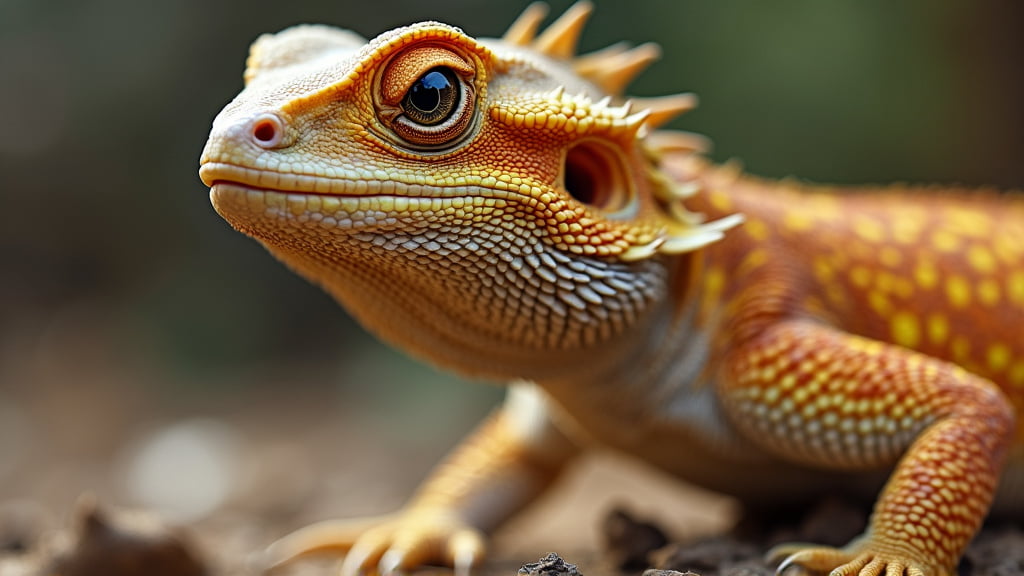Are you considering breeding your beloved bearded dragons? As enchanting as these creatures are, bearded dragon breeding can be quite a rewarding yet challenging venture. It’s crucial to understand the potential breeding problems that might emerge and how best to manage them. Drawing from my years of experience with these fascinating reptiles, let’s dive into the complexities of bearded dragon breeding problems.
Preparing for Breeding: The Basics
Before embarking on the breeding journey, it’s essential to ensure your dragons are in peak health and ready for the task.
Health and Age
Breeding should only be considered when both the male and female dragons are at least 18 months old. Breeding them too young can lead to problems such as:
- Stunted growth
- Health deterioration
- Infertile eggs
Both dragons should undergo a health check-up by a qualified reptile vet to rule out any underlying conditions.
Proper Nutrition
Proper nutrition is pivotal for successful breeding. Ensure your dragons are on a balanced diet rich in calcium and vitamins:
- Calcium supplementation is crucial to preventing metabolic bone disease, which can affect egg production.
- Vitamin D3 from UVB light exposure helps in calcium absorption.
Common Bearded Dragon Breeding Problems
Even with the best preparations, breeding issues may still arise. Here are some of the common problems you might encounter.
Infertility
One of the most frustrating issues is when your bearded dragon remains infertile.
Causes of Infertility
- Poor health: Illness or nutritional deficiencies can result in infertility.
- Improper temperatures: Breeding requires specific temperature and humidity conditions.
Solutions
- Vet Examination: A qualified reptile vet can help determine the underlying causes of infertility.
- Optimal Conditions: Maintain the right environment with basking temperatures around 35-40°C and adequate UVB lighting.
Egg Binding
Egg binding (dystocia) can be a life-threatening condition where the female is unable to lay her eggs.
Symptoms of Egg Binding
- Lethargy
- Swelling around the abdomen
- Straining without success
Preventing Egg Binding
- Calcium-Rich Diet: Ensure the female has a calcium-rich diet to aid egg shell formation.
- Appropriate Substrate: Provide a suitable laying area with soft, diggable substrate.
Treatment
- Immediate Veterinary Attention: If you suspect egg binding, take your dragon to the vet immediately. This is a medical emergency.
Aggression Between Mates
Aggression is another common problem, especially during the introduction phase.
Identifying Aggression
- Biting or chasing
- Head bobbing and flaring beard (usually by males)
Managing Aggression
- Separate Enclosures: House males and females separately and introduce them gradually.
- Observation: Always supervise initial interactions.
Post-Breeding Concerns
Once you’ve overcome the immediate breeding challenges, there are still issues to monitor post-breeding.
Hatchling Health
Newborn hatchlings can present their own set of challenges.
Common Hatchling Problems
- Failure to Thrive: Some hatchlings may not eat or grow well.
- Deformities: These can be due to nutritional deficiencies in the parents or genetic issues.
Ensuring Healthy Hatchlings
- Proper Diet: Feed the hatchlings a diet of small insects like pinhead crickets dusted with calcium powder.
- Prevent Overcrowding: Overcrowding can stress hatchlings and lead to aggressive behaviour.
Parental Health
Breeding can be exhausting for female dragons, potentially leading to:
- Calcium Deficiency
- Weight Loss
Post-Breeding Care for Females
- Increased Nutrition: Provide a nutrient-dense diet post-laying.
- Plenty of Rest: Ensure she has a stress-free environment to recover.
Breeding bearded dragons can be a rewarding experience if approached with care and knowledge. Always prioritise the health and well-being of both the parents and the hatchlings. Remember, if you encounter any problems beyond basic troubleshooting, consult a reptile vet.
For more in-depth information on bearded dragon care, check out our Comprehensive Guide to Bearded Dragon Nutrition.
Meta Description: Discover essential tips for addressing bearded dragon breeding problems, from infertility to egg binding, and ensure the health and success of your breeding efforts.
With the right preparation and care, you’re well on your way to a successful and fulfilling breeding experience. Happy breeding!
Overall, make sure your dragons are well-cared for, and always be vigilant for signs of trouble. Happy breeding!

